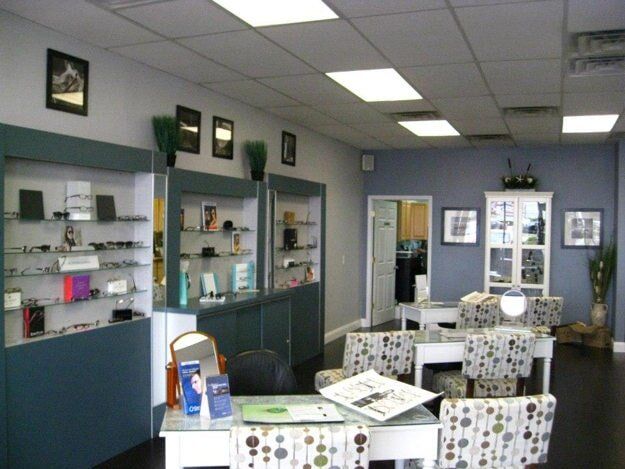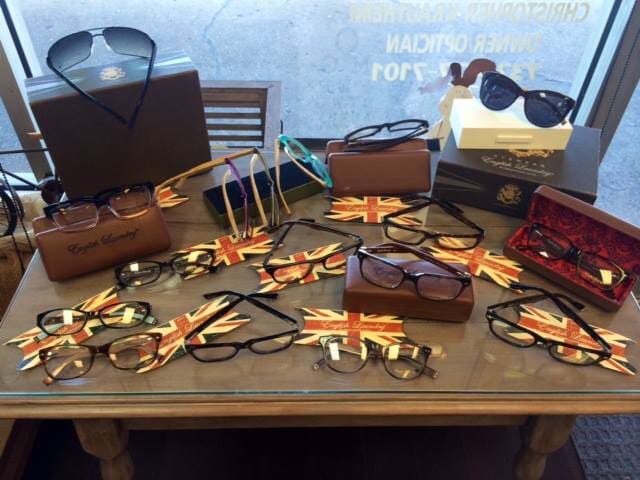Eye Care Frequently Asked Questions in Brick, NJ
HOW LONG HAS JERSEY SHORE EYE CARE BEEN IN BUSINESS?
Jersey shore Eyecare has been in business since June 2004. We are a full service retail optical store supplying eyeglasses, contact lenses, and personalized customer service. We also have an optometrist Dr Cindy Rado on staff four days a week.
IS THE OWNER USUALLY PRESENT DURING NORMAL BUSINESS HOURS?
At Jersey Shore Eyecare you will usually find owner Chris Krautheim at the store at least five days a week. If for some reason you would like to deal with Chris personally, feel free to call ahead for his schedule as his days off sometimes change.
IS A DOCTOR ALWAYS ONSITE?
Dr.'s hours – Dr. Cindy Rado is a Therapeutic Optometrist. She is a Provider who can prescribe prescriptions for the eyes. Appointments available Mondays Wednesdays, Fridays, and Saturdays, with evening appointments available on Wednesdays.
WHAT ARE YOUR HOURS OF OPERATION?
Our hours of operation are as follows Monday 10-7 Tues, Thursday, Friday 10-6 Wednesday 10-8 and Saturday 10-3 In the some months the store hours on Saturday Change To 9-2
DO I NEED AN APPOINTMENT OR CAN I JUST WALK IN?
At Jersey Shore Eyecare we do accept walk-ins if our schedule allows. We do recommend however that you call in advance to schedule an appointment so that we have a set time put aside for you. Please keep in mind that medical issues and/or needing to be fit with contact lenses does add time to an examination appointment.


EYE CARE FAQ'S
HOW OFTEN SHOULD I HAVE AN EYE EXAM?
We recommend that patients have eye exams yearly. We feel it is important to point out that if it is recommended to go to the dentist every 6 months, it is recommended, for the health of your eyes, to have your eyes checked yearly.
Contact lenses are considered a medical devise and are required to be checked and updated on a yearly basis.
Contact lenses are considered a medical devise and are required to be checked and updated on a yearly basis.
CHILD-NEEDS-GLASSES
4 Signs your child may need vision correction:
SQUINTING. This act is a sign your child is compensating for poor vision. Squinting is like looking through a small hole. Looking through a small opening reduces the size of the blurred image on the back of the retina which temporarily improves vision.
TILTING OF THE HEAD. This could be a sign that your child has a muscle imbalance or ( strabismus ). Your child could be having double vision when looking down or in a certain direction. Tilting the head maybe minimizing the double vision.
SITTING TO CLOSE TO THE TELEVISION. Your parents always told us not to sit so close to the television. Well you may have been trying to tell them something. Sitting to close or lowering your head while reading could be a sign of nearsightedness. Nearsighted people usually have clear vision looking at objects close to them and poor vision from a far. Moving closer to an object brings it into clear focal point and makes the image larger.
COVERING OR CLOSING ONE EYE TO WATCH TV OR READ. A child does this to compensate not seeing clearly out of one eye. By shutting off vision to the poorer vision eye allows the patient to see clearer. Covering one could be a sign of double vision caused by strabismus. An uncorrected vision problem can increase the child's risk of amblyopia. Amblyopia occurs in early childhood. When nerve pathways between the brain and an eye aren't properly stimulated, the brain favors the other eye.
SQUINTING. This act is a sign your child is compensating for poor vision. Squinting is like looking through a small hole. Looking through a small opening reduces the size of the blurred image on the back of the retina which temporarily improves vision.
TILTING OF THE HEAD. This could be a sign that your child has a muscle imbalance or ( strabismus ). Your child could be having double vision when looking down or in a certain direction. Tilting the head maybe minimizing the double vision.
SITTING TO CLOSE TO THE TELEVISION. Your parents always told us not to sit so close to the television. Well you may have been trying to tell them something. Sitting to close or lowering your head while reading could be a sign of nearsightedness. Nearsighted people usually have clear vision looking at objects close to them and poor vision from a far. Moving closer to an object brings it into clear focal point and makes the image larger.
COVERING OR CLOSING ONE EYE TO WATCH TV OR READ. A child does this to compensate not seeing clearly out of one eye. By shutting off vision to the poorer vision eye allows the patient to see clearer. Covering one could be a sign of double vision caused by strabismus. An uncorrected vision problem can increase the child's risk of amblyopia. Amblyopia occurs in early childhood. When nerve pathways between the brain and an eye aren't properly stimulated, the brain favors the other eye.
IF I WORK ON A COMPUTER ALL DAY COULD THIS HURT MY EYES?
Consider Carpal tunnel Syndrome, a condition that over time affects the wrists or elbow due to the motions of the hands, wrists, and elbows. Similarly, when you are looking at a computer your eyes are constantly working to focus, in the long run this causes Computer Vision Syndrome. When doing PC work as opposed to book work it is far more challenging for your eyes. Your eyes are accommodating to the changes from looking at the screen to paper, hence a constant strain on your eye muscles to refocus. Do you experience any of the following conditions? Blurred vision, double vision, dry eyes, eye irritation, or head aches? If so we suggest Bluelight lenses. They are specifically designed to filter out blue light coming from computers and hand held devices. The result is reduced glare and improved contrast which in turn helps reduce the strain on your eyes, and can reduce your chances of suffering from CVS. The lens is made with a high impact material which is durable, and scratch resistant.
HOW DO I AVOID ANNOYING REFECTION ON MY EYEGLASSES?
Going back 20 to 30 years was recommended was a light tint 10-20%. Now we highly recommend an anti reflective coating which will eliminate any reflective light on the lenses. Every eyeglass wearer can benefit from these coatings but patients with higher RX's it is a must. The anti reflective coatings available today come with a tough scratch coating layer and in some cases also an ultra violet protectant.

